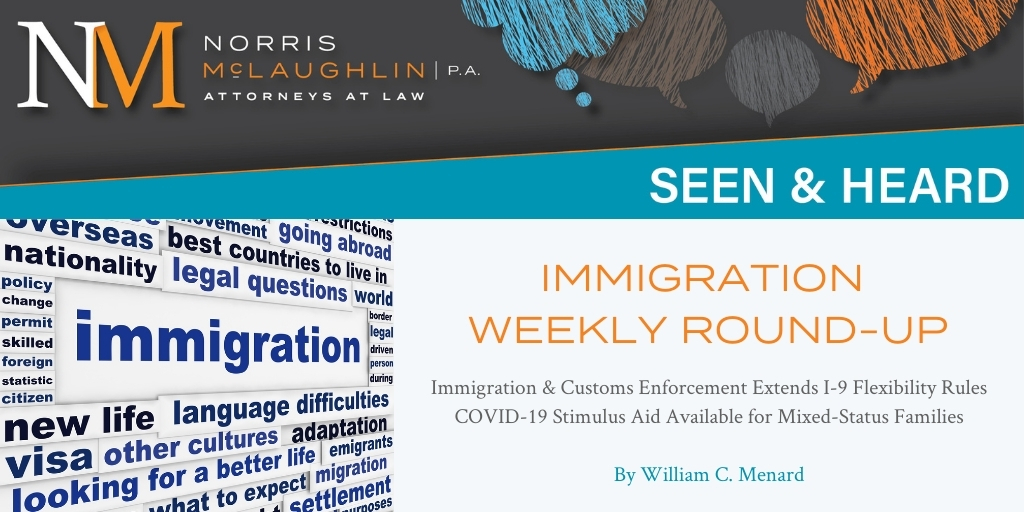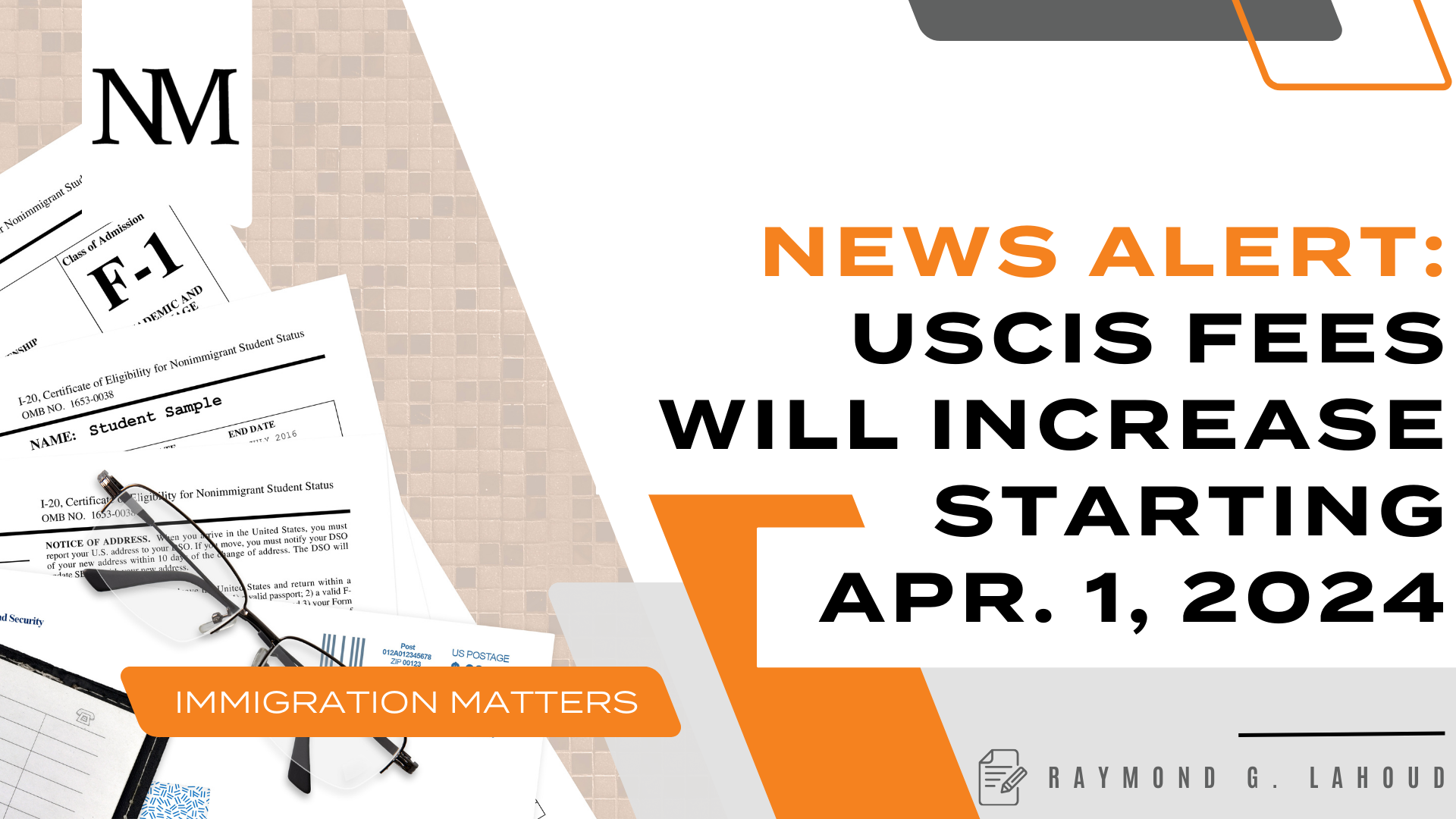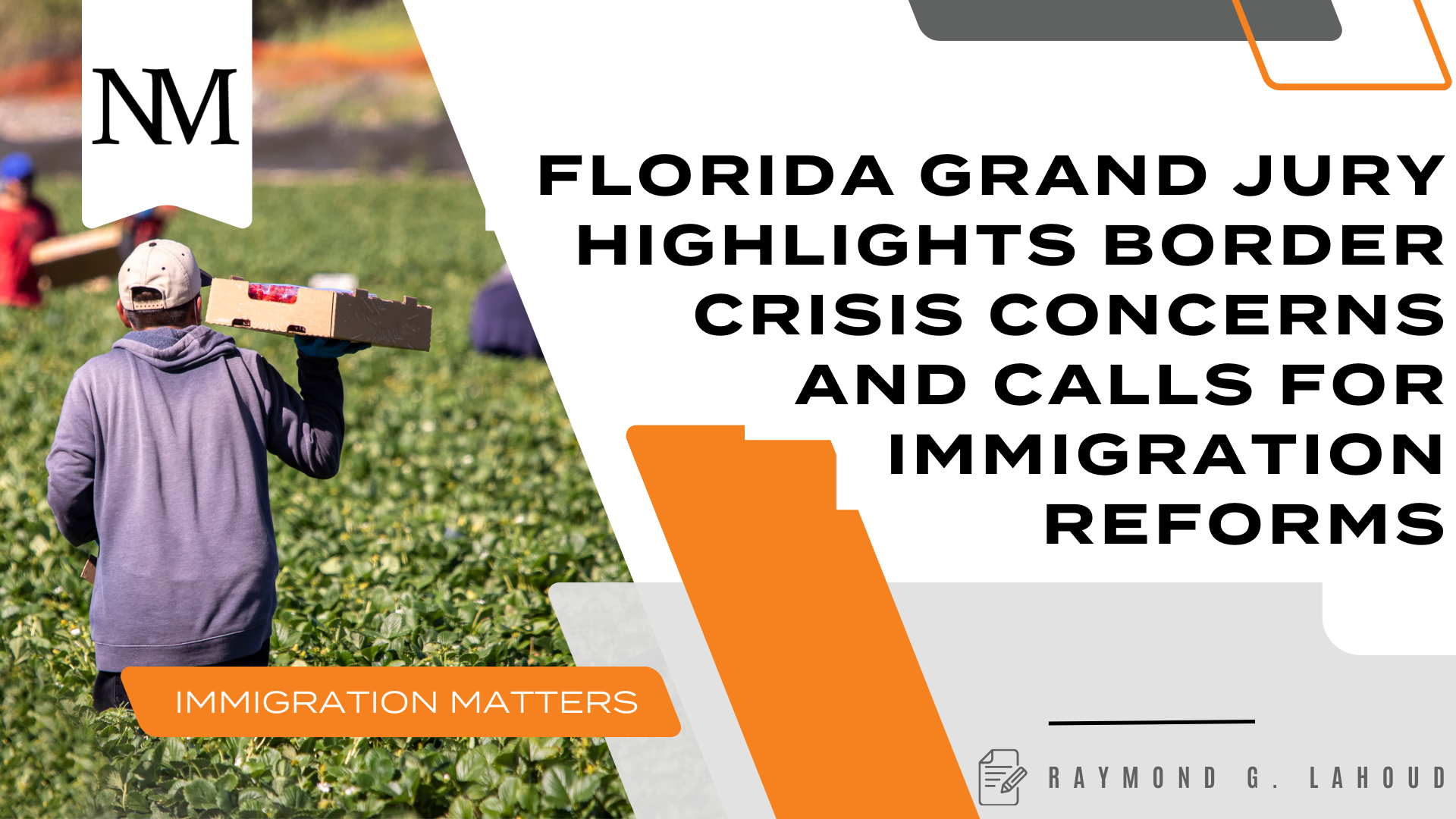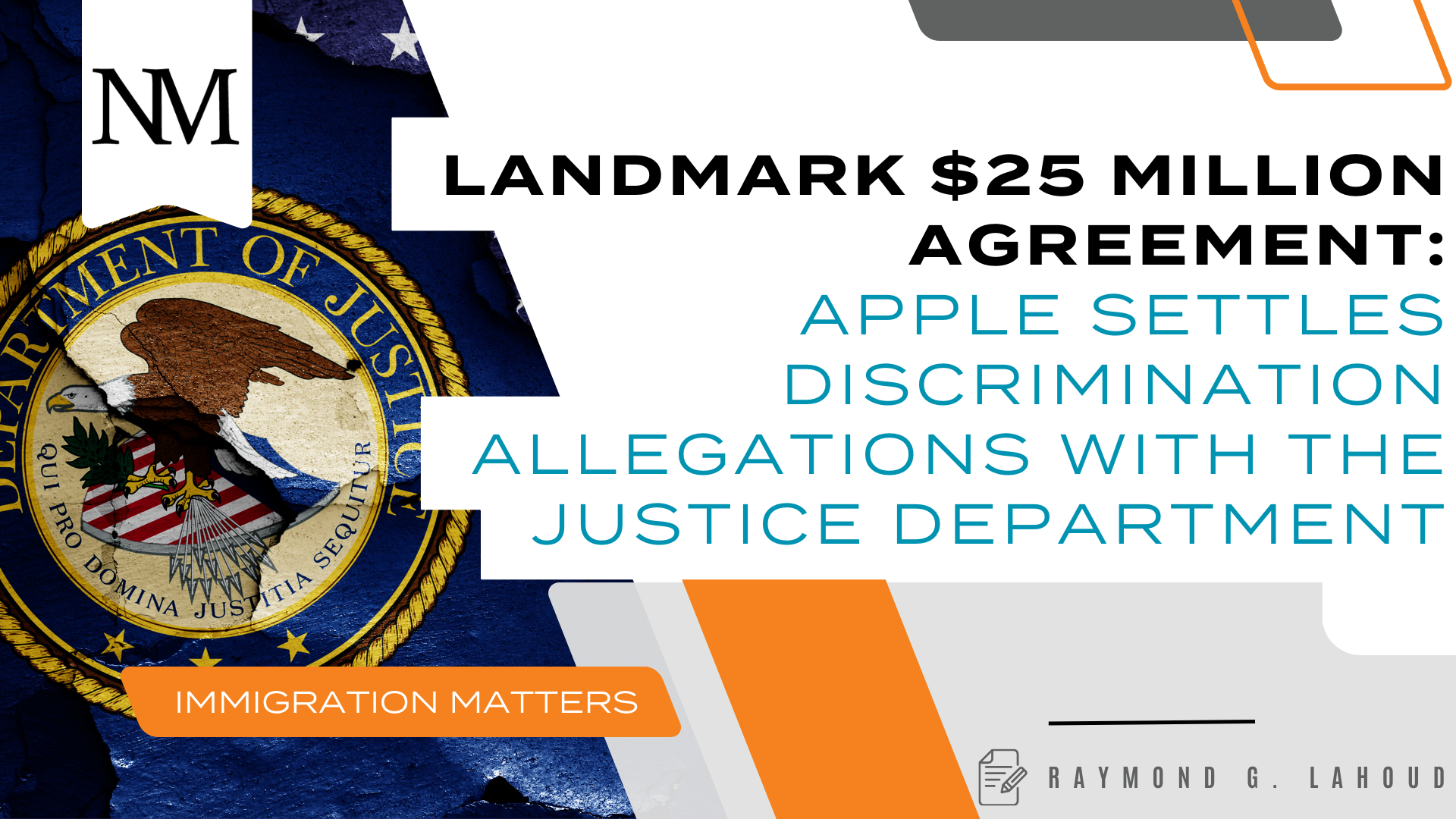Weekly Round-Up: Visa Restrictions Extended; DNA Testing for Sponsors of Noncitizen Minor Children; Stricter Financial Requirements for Intending Immigrants Take Effect

Trump Administration Extends Restrictions on Visa Applications for Foreign Workers
The White House has extended through March 31, 2021, restrictions on visa applications and entry into the United States for certain foreign national workers. The restrictions had been set to expire on December 31, 2020.
On June 22, 2020, the White House issued presidential proclamation 10052, which ordered that no new visas would be issued in the H-1B, H-2B, L-1, and several J-1 visa categories, affecting employees in a broad range of positions, including multinational managers and executives, physicians, engineers, teachers, au pairs, and camp counselors. Since then these restrictions have delayed entry into the United States for thousands of employees seeking to work for American companies.
Despite the three-month extension, several exceptions to this rule remain in effect. First, foreign nationals already inside the United States are not affected by these restrictions. Second, if a foreign national had a visa issued prior to June 24, 2020, that person may still seek to enter the United States on that visa. Third, Canadian nationals who are visa-exempt may enter the United States. Fourth, foreign nationals in the H, L, or J categories who are essential workers in the U.S. food supply chain, or whose admission would be deemed in the national interest, may seek an exemption from the restrictions in order to enter and work in the United States. Finally, pursuant to a federal court order, a foreign national is exempted from the visa restrictions if their U.S. employer is a member of one or more of the following organizations:
- National Association of Manufacturers
- U.S. Chamber of Commerce
- National Retail Federation
- Technology Network (TechNet)
- Intrax
We will continue to follow this story into the new administration and as the March 31 deadline approaches. Please reach out to us with any questions about the current restrictions and/or exemptions.
Federal Government Proposes DNA Testing in Cases Involving Unaccompanied Minors
A new rule proposed on January 5, 2021, would allow the Department of Health and Human Services (“HHS”) to collect additional information, including DNA samples, for sponsors seeking custody of “unaccompanied minors” (children who have entered the United States without their parents). The Office of Refugee Resettlement (“ORR”), a division of HHS, would oversee the testing.
The proposed rule would allow sponsors to voluntarily submit DNA samples to show a familial link to the unaccompanied minor. It would also allow for ORR to require DNA samples when there are suspicions of fraud about the biological relationship between the minor and the sponsor. And it would allow for the ORR to implement a 45-day deadline for sponsors to submit documentation to support their sponsorship application. Finally, the ORR would require sponsors to enroll in specific services that would permit government caseworkers to have a specific phone and in-person contact with the unaccompanied minor child shortly after release from detention.
The public has 60 days – until March 6, 2021 – to comment on the proposed rule changes.
Court Rules Foreign Nationals Without Medical Insurance Can Be Denied Green Cards
On December 31, 2020, the U.S. Court of Appeals for the Ninth Circuit upheld the Trump Administration’s policy permitting the Department of Homeland Security to deny legal permanent residency (a “green card”) to noncitizens who lack health insurance or cannot establish the ability to pay for medical care upon admission.
In a 2-1 decision, the court held that this rule was “not an unlawful exercise of the President’s authority” and did not violate any federal laws. The ruling allows denial of green cards to foreign nationals who are not able to prove, within 30 days of admission to the United States, that they have either enrolled in health insurance in the United States or otherwise have the financial resources to pay for medical expenses. The decision lifted an injunction that had blocked enforcement of the new rule for two months.
The incoming Biden administration has not yet commented on the recent ruling and how or whether it will be enforced.
If you have any questions about this blog post or any other immigration concerns, please feel free to contact me at wcmenard@norris-law.com or 484-544-0022.




